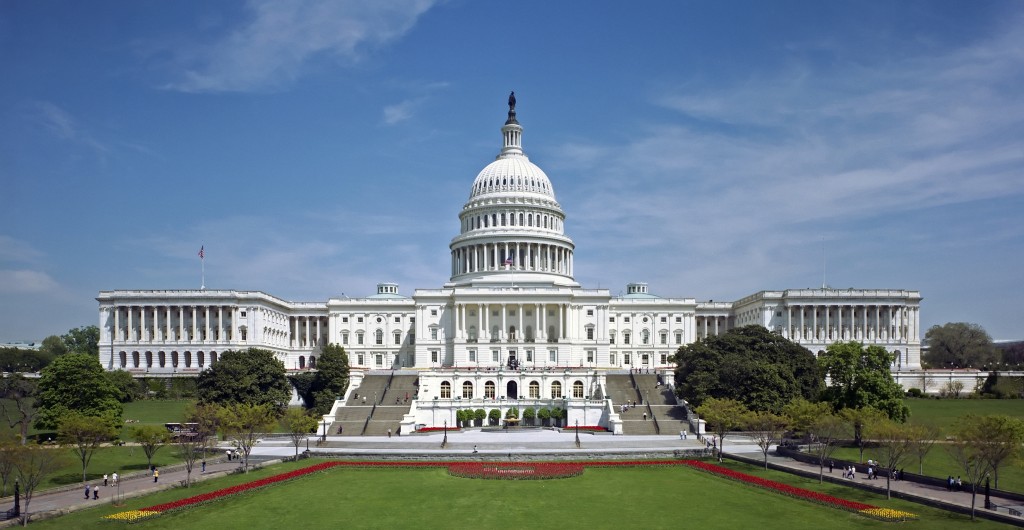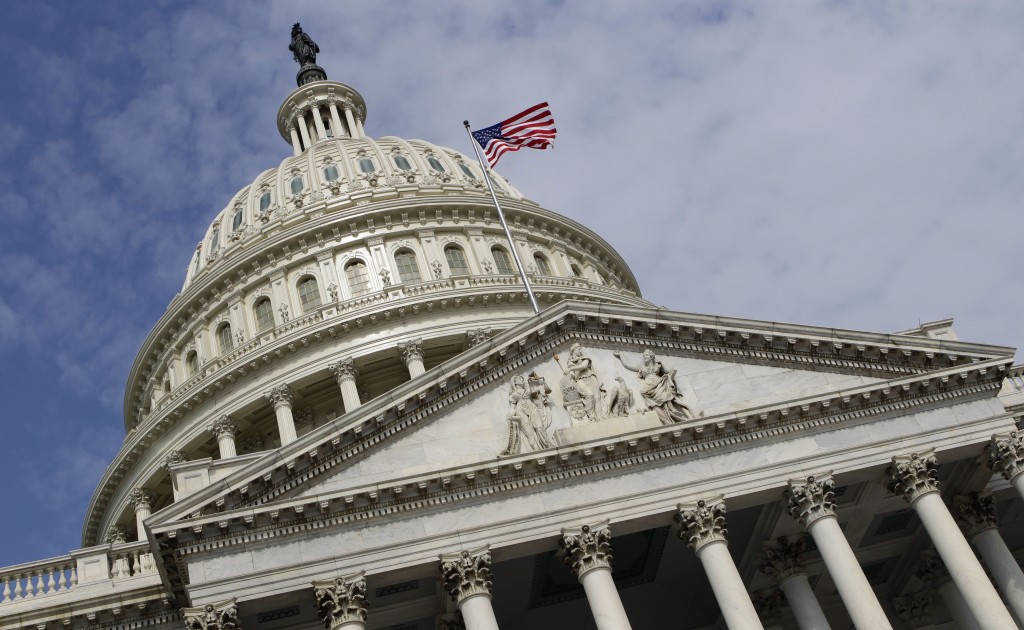You can count gigabit broadband subscribers in Alabama’s ‘Gig City’ on one finger

If you build it, sometimes they don’t come. Opelika spent about $43 million to build a broadband network capable of 1 gigabit-per-second symmetrical speeds, financed by a bond issue backed up by the revenue of Opelika Power Services. Four years later (as of Aug. 26), OPS has one subscriber for its Lite Speed Gig service and none for its next highest tier, Lite Speed Plus, with upload and download speeds of 300 megabits per second. David Williams, president of the Taxpayers Protection Alliance, said he’s not surprised. “You put in this expensive service and people aren’t going to pay $500 a month for a gig,” he said. “All that glitters is not gold. Just because you create the gig service doesn’t mean people are going to use it.” “How do you justify the costs to taxpayers when one person is using the gig service?” Williams asked. Watchdog.org received the subscriber numbers from OPS through a Freedom of Information Act request. OPS Director Derek Lee, who emailed the numbers, didn’t respond to a request to discuss how subscriber numbers correlate with plans to pay back the bond debt. Opelika Mayor Gary Fuller told Watchdog.org via email that “we’ll begin our fourth year of operation in October and we are on pace with our five-year plan to be at break even.” Fuller also told Business Alabama in 2014 he thought the city would break even on its broadband over the next four years, with future profits being sent to the city general fund. “It takes quite a bit of courage to take a $43 million bite out of that apple,” he told the media outlet. Voters approved the plan via referendum in 2010. OPS’s broadband service has 2,717 subscribers overall in a city of about 30,000 residents, with the majority of those subscribing to the $44.95-per-month Lite Choice service. The breakdown is as follows: Lite Essential – 661 ($34.95 per month residential, 10 mbps download/5 mbps upload) Lite Choice – 1,548 ($44.95, 30/15) Lite Ultra – 485 ($64.95, 50/25) Lite Speed – 22 ($99.95, 110/50) Lite Speed Plus – 0 ($249.95, 300/300) Lite Speed Gig – 1 ($499.95 1,000/1,000 At residential broadband pricing, these numbers would represent about $127,000 in monthly revenue, or about $1.5 million per year, though many subscribers also likely bundle their internet with cable and/or home phone service. Cable packages range from $50 to $80 per month, and phone packages between $20 and $40 per month. The total gross revenue could also be marginally higher because OPS charges more for business clients and Watchdog.org didn’t request subscriber numbers broken down by customer type. But these numbers also don’t account for the costs of operating and maintaining the network. Watchdog plans to file another FOIA to get more detailed numbers of how much OPS reaps in broadband revenue. T. Randolph Beard, an Auburn University economics professor who has written op-eds opposing expansion of government broadband, told Watchdog that people can easily stream movies — one of the most data-heavy uses of home internet — on multiple devices at minimum broadband speeds. “I’m not shocked [at the subscriber numbers] because those are enterprise services,” he said of speeds approaching a gig. “There are a very small number of customers who would need something like that.” OPS marketing manager June Owens previously told Watchdog the utility charges $2,700 a month for business customers of the gig service, which may be pricing them out of the market. Beard notes that governments say they need to build broadband networks to serve their citizens, but the very threat of a taxpayer- or ratepayer-backed network can easily scare off private providers from entering a market in the first place. “There’s a kind of ironic self-fulfilling prophecy,” he said. State Sen. Tom Whatley, R-Auburn, whose district includes Opelika, is likely to file legislation in 2017 that would allow OPS to expand into rural areas around the city. That bill would apply to any other municipal broadband network that wished to expand, as well. Beard said that would be unwise. “The track record is so bad,” he said. “I don’t think making the mistake bigger is a good idea.” • • • This article originally appeared on American Spectator via Watchdog.org. Johnny Kampis is a content editor and staff writer at Watchdog.org.
Robert Bentley grants $1.9 million in aid to assist rape and abuse victims across Alabama

Gov. Robert Bentley has awarded grants totaling $1.9 million in support of nonprofit groups that assist rape and abuse victims in south and central Alabama. The Montgomery Area Family Violence Program, commonly known as the Family Sunshine Center, is using $1.4 million in grant funds to aid domestic violence victims in Autauga, Butler, Chilton, Crenshaw, Dallas, Elmore, Lowndes, Montgomery, Perry, and Wilcox counties. The Family Sunshine Center offers counseling services, case management, advocacy and safe shelter for abuse victims. A portion of the grant funds will help renovate a children’s playground at the organization’s emergency shelter. The playground is used as an outdoor play space to assist children as they recover from the trauma and stabilize their lives through therapeutic childcare and play. Matching funds of $129,660 are supplementing the grants.The agency also is one of 17 domestic violence centers in the state to receive additional funding through the state’s Domestic Violence Trust Fund. The fund, created through the state marriage license fee, is distributed quarterly to the agencies and is used to provide shelter for victims and to conduct educational and prevention programs. Lighthouse Counseling Center is using $290,000 in grants to continue its Standing Together Against Rape program for victims of sexual assault in Autauga, Butler, Crenshaw, Elmore, Lowndes, Montgomery, Perry, and Wilcox counties. Lighthouse Counseling Centers provide crisis counseling, two mobile units to assist victims who live in rural areas, advocacy services, and accompaniment to court hearings as well as a 24-hour crisis line and transportation services.The program also uses volunteer registered nurses who are specially trained to care for victims and collect evidence. The volunteers conduct the exams privately to spare victims the stress of visiting a hospital emergency room where privacy may be limited and wait times can be lengthy. Matching funds of $62,638 will supplement the grant. Child Protect is using $144,000 to continue providing services for child victims in Autauga, Elmore, and Montgomery counties. Child Protect provides counseling, forensic interviews, and family advocacy to children and caregivers. Matching funds of $33,751 are supplementing the grant. Legal Services Alabama is using a $64,775 grant to provide attorneys to represent low-income clients in domestic violence cases in Autauga, Bullock, Butler, Chilton, Crenshaw, Elmore, Lowndes, Montgomery, and Pike counties. Matching funds of $16,193 are supplementing the grant. LSA serves low-income people by providing civil legal aid and by promoting collaboration to find solutions to problems of poverty. “Abuse victims of all ages should have access to specialized care that can help them begin recovery and seek justice for the crimes committed against them,” Bentley said. “I commend the staff and volunteers from these organizations for their continued work and commitment to helping those most in need.” The Alabama Department of Economic and Community Affairs is administering the grants from funds made available to the state by the U.S. Department of Justice and the U.S. Department of Health and Human Services. ADECA manages a wide array of programs that support law enforcement and traffic safety, energy conservation, water resource management, economic development, and recreation. “Through ADECA’s partnerships with these organizations, we are ensuring that those who unfortunately become victims of abuse will have a safe place to turn for professional assistance as they escape abusive situations and begin recovery,” ADECA Director Jim Byard Jr. said.
This week in the U.S. House of Representatives, Senate: Sept. 19-23, 2016

The U.S. House of Representatives and U.S. Senate are moving full steam ahead working to finalize negotiations surrounding a Continuing Resolution (CR) to keep the government running beyond the end of September and into December, through the November election. Many lawmakers are hopeful to strike a deal early, which would allow them to recess ahead of schedule and head back to the campaign trail for the pre-election recess that is scheduled to begin Oct. 1. U.S. House of Representatives On Monday, the House meets in pro forma session. On Tuesday, the House is in session and will consider several bills under Suspension of the Rules. A full list of bills can be found here. On Wednesday, the House will consider several more suspensions as well as H.R. 3438: the Require Evaluation before Implementing Executive Wishlists (REVIEW) Act. The bill would delay the effective date of “high-impact” regulations, or those costing more than $1 billion annually, until all court challenges to the regulation have been settled. Alabama co-sponsor(s): Rep. Mo Brooks (AL-05) For the balance of the week, the House is expected to consider the following: H.R. 5461: the Iranian Leadership Asset Transparency Act. The bill requires the Treasury secretary to compile and submit to Congress a report detailing the known assets of Iran’s top political and military leaders, how those assets were acquired, and for what purposes the assets were used. Alabama co-sponsor(s): None H.R. 5931: the Prohibiting Future Ransom Payments to Iran Act. The bill states that it is the policy of the U.S. government not to pay ransom or release prisoners for the purpose of securing the release of U.S. citizens taken hostage abroad, and it generally prohibits the U.S. government from providing to the government of Iran, either directly or indirectly, any cash or other promissory note. It requires the administration to obtain a Treasury foreign assets license before settling any pending financial claims with Iran, and to publicly disclose each such transaction and payment. Alabama co-sponsor(s): None H.R. 5719: the Empowering Employees through Stock Ownership Act. The bill would allow employee stockholders in startup ventures to defer taxes for seven years on stock options in their companies. To qualify, the stock options would have to be offered to at least 80 percent of a company’s workforce, and the benefit would not be available to majority owners, corporate officers, or the highest-paid executives. Alabama co-sponsor(s): None The House may also consider H.R. 1309: the Systemic Risk Designation Improvement Act. The bill would eliminate a $50 billion asset threshold, set by the 2010 Dodd-Frank financial overhaul, that deems banks of that size or larger to be systemically important financial institutions (SIFI). The SIFI designation brings enhanced federal oversight as well as requirements to maintain certain levels of capital and other assets. Instead, the bill authorizes the Financial Stability Oversight Council to decide whether banks should be subject to enhanced supervision and standards because of financial distress at the bank, or because the nature, scope, size, scale, concentration, interconnectedness or mix of its activities could threaten the financial stability of the United States. Alabama co-sponsor(s): Rep. Bradley Byrne (AL-01); Rep. Martha Roby (AL-02); Rep. Mike Rogers (AL-03); Rep. Robert Aderholt (AL-04); Rep. Mo Brooks (AL-05); Rep. Terri Sewell (AL-07) Majority Leader Rep. Kevin McCarthy has indicated additional legislative items are also possible this week. U.S. Senate The Senate is in session and may consider a 10-week continuing resolution (CR) as early as Monday. Congress must pass a CR or other funding legislation before the end of the fiscal year on Sept. 30 in order avert a government shutdown. The pending CR is expected to fund the government through Dec. 9, one week before Congress is currently scheduled to adjourn for the December holidays. Additional legislation is also possible in the Senate this week.
Congress works to finish Zika aid, prevent shutdown

Driven by a desire to free up endangered lawmakers to campaign, congressional negotiators are working to quickly complete a spending bill to prevent an election-season government shutdown and finally provide money to battle the threat of the Zika virus. The stopgap measure would keep the government running past the end of the budget year this month. It’s the only measure that has to pass before Congress adjourns for Election Day. As such, the talks have been tricky, with Republicans controlling Congress battling Democrats and the Obama administration. A controversy involving whether Planned Parenthood should be eligible for anti-Zika funding in Puerto Rico – which sparked a Democratic blockade of an earlier measure – appears to have been defused, lawmakers and aides say. But unrelated controversies over pesticide regulations, spending cuts and limitations on how many hours long-haul truckers can drive were sticking points over the weekend. Top Senate leaders hope to seal an agreement Monday in time for a procedural vote slated for early evening. If a deal isn’t reached, the vote could be postponed. Senate Majority Leader Mitch McConnell, R-Ky., is eager to send vulnerable incumbents such as Kelly Ayotte, R-N.H., and Richard Burr, R-N.C., back to their states to campaign. Any measure that’s going to prevent a shutdown on Oct. 1 will need the support of Democrats and a signature from President Barack Obama, and McConnell is better positioned to take charge since he has a less combative group of Senate Republicans than House Speaker Paul Ryan of Wisconsin. On Saturday, Obama used his radio address to pressure Congress, listing unresolved business such as the emergency Zika money, aid to flood-ravaged Louisiana and Flint, Michigan, hit by lead-contaminated water, and the languishing Supreme Court nomination of Merrick Garland. “If any of these priorities matter to you, let your congressperson know,” Obama said. “And if they still refuse to do their jobs – well, you know what to do in November. Our government only works as well as the people we elect. And that’s entirely up to you.” The $1 billion-plus to fight the mosquito-borne Zika virus is months overdue. Republicans were slow to act on Obama’s February request and then sparked an imbroglio with Democrats by restricting new health grants for Puerto Rico to entities like public health providers and hospitals, a step that Republicans acknowledge was aimed at ensuring Planned Parenthood was ineligible to receive any funds. A proposed solution would move the money to different accounts and make sure Planned Parenthood remains eligible to receive it. Another proposal would temporarily ease pesticide spraying rules from Clean Water Act requirements for permits. Supporters say the permits are duplicative since pesticides are generally regulated by a different environmental law, but the idea is opposed by the administration, which says it’s an assault on environmental laws. Democrats also are opposed to pairing the Zika money with spending cuts intended to try to pay for it. Other disasters, like floods and emergency wildfire funds, haven’t required such offsetting cuts, and Democrats don’t want to set the precedent. But House conservatives insist on cuts, known in Washington-speak as offsets, and Democrats are willing to accept some – especially those that are painless, such as erasing money that wouldn’t be spent anyway under arcane budget rules. Republished with permission of the Associated Press.
In Florida, a shifting Cuban vote could be the difference

Francis Suarez comes from a long line of civic and political leaders who have formed the Republican bedrock in south Florida’s Cuban community for a half-century. Yet the 38-year-old Miami city commissioner hasn’t decided whether he will vote for his party’s presidential nominee. And he’s not alone. Many Cuban-Americans express solidarity with other Latin-Americans who see Donald Trump as anti-Hispanic. Still others hear in Trump’s nationalistic populism echoes of the government strongmen they once fled. “There are aspects of Trump that appeal to parts of the Cuban-American culture: strong leadership, the ability and willingness to say bold things,” says Suarez, the son of a former Miami mayor and a potential chief executive himself. The concern, Suarez says, comes when Trump’s boorishness, bullying and slapdash policy pronouncements “cross the line from bold to wild, unpredictable.” How those misgivings influence the votes of hundreds of thousands of Cuban-Americans could tilt the nation’s most populous presidential battleground state and, depending on circumstances elsewhere, determine whether Trump or Democrat Hillary Clinton wins the election. Roberto Rodriguez Tejera, a well-known Spanish-language radio and television host in Miami, says he won’t endorse Trump or Clinton, arguing neither has engaged in genuine, personal outreach to average Cuban and other Hispanic voters. But Tejera asks his audiences to compare Trump’s assertions that “I am your voice” and “I alone can solve” societal ills to the initial appeals of authoritarian rulers like Cuba’s Fidel Castro and the late Hugo Chavez in Venezuela. “It goes well beyond immigration to the very nature of our Latin-American problem,” Tejera said in an interview. “Many of us remember how it starts. It starts with questioning institutions. Then you destroy institutions – you being the only person in the world who can save the nation from collapse.” Fernand Amandi, a Democratic south Florida pollster, estimates the Cuban-American vote could approach 8 percent of the 8 million-plus ballots cast in Florida in November. Amandi said Cuban-Americans are “the only Hispanic group in the country” to support Trump over Clinton in preference polling, but not by a margin victorious Republican nominees have managed. Trump aides note support from some elected officials and volunteers within the Cuban-American community, but Trump adviser Karen Giorno said his strategy ultimately considers Cuban-Americans as it does anyone else: “They are worried about safety and security. They are worried about the economy. They are worried about drugs on the street. They are worried about the same things other Americans are worried about.” Suarez, the Miami commissioner, applauds that approach, but he says it doesn’t account for some Cubans-Americans who are thinking of themselves, for the first time in presidential politics, as aligned with immigrants from Mexico and the nations of Central and South America – a collective class of people who have never enjoyed Cubans’ favored immigration status. “Some Cubans don’t consider themselves Hispanic,” says Amandi, the Democratic pollster. But now, says Republican pollster Dario Moreno, Trump has made immigration a “symbolic issue” that penetrates the Cuban psyche. “Anti-immigration rhetoric is taken as anti-Hispanic,” Moreno said, “and you see that even among the old Cubans” who were the first to arrive in Florida as refugees after Castro came to power in 1959. Clinton certainly sees an opening. In the last week, she launched an advertising blitz featuring the endorsement of Carlos Gutierrez, a Cuban-American Republican and commerce secretary for President George W. Bush. Speaking in Spanish, Gutierrez calls Trump dangerous and says: “For me, it’s country first, and then party.” One of the GOP’s top financiers, health-care billionaire Mike Fernandez, recently called Trump an “abysmally unfit candidate” and endorsed Clinton. Other prominent Republicans – Miami Mayor Tomas Regalado and U.S. Reps. Carlos Curbelo and Ileana Ros-Lehtinen – have said they will not support Trump, though they’ve stopped short of endorsing Clinton. Tejera, the broadcaster, says heavyweights like Gutierrez and Fernandez “won’t move one vote,” but their public backing of a Democratic nominee is a striking development in Cuban-American politics. For decades, the equation was simple: U.S. politicians of all persuasions blasted the Castro government and supported the trade embargo first imposed under President John F. Kennedy, a Democrat. Despite mostly bipartisan agreement, initial Cuban arrivals to the U.S. aligned overwhelmingly with Republicans, largely out of anger at Kennedy’s handling of the failed Bay of Pigs invasion intended to topple Castro in 1961. Yet many in that generation have died or are old, and their children and grandchildren, along with more recent Cuban immigrants, aren’t as hard line or simply don’t vote exclusively on “the Cuba question.” “We’re starting to see them think and vote like everybody else, not be driven by a single issue,” says Moreno, the Republican pollster and a professor at Miami’s Florida International University. Exit polls in the 2012 election found Cuban-Americans essentially split between President Barack Obama and Republican Mitt Romney, less than a decade after George W. Bush won the Cuban vote overwhelmingly. Obama has since normalized diplomatic relations with Havana, traveled to the island for a state visit and called on Congress to lift the trade embargo. Clinton has forcefully ratified Obama’s stance. Until last week, Trump effectively endorsed it, as well, with vague qualifiers that he’d get “a better deal” than Obama. Yet on Friday in Miami, he reversed himself, embracing the hard-liners’ longstanding views and promising to roll back Obama’s actions unless the Castro government expanded political freedoms on the island. Rudy Fernandez, 43, who spent almost a decade working at the Republican National Committee and in the White House under George W. Bush, doesn’t mention Cuba when explaining why he will choose between Clinton and Libertarian Gary Johnson. Rather, he argues that Trump has been “deeply divisive” and adds a common GOP establishment critique that the billionaire “is not a Republican … not a conservative” and “lacks the temperament required for the job.” To be clear, Clinton doesn’t have a lock on Cuban-American votes Trump may lose. Amandi notes that Clinton’s Spanish-language media presence began months later than Obama’s general election efforts.
Alabama No. 1 in America for prescription opioid use

Alabama’s use of prescription opioids reached the highest in the country last year — 5.8 million prescriptions were written in 2015. Meanwhile, companies creating the prescription painkillers and their advocates have contributed more than $539,350 to Alabama candidates, and since 2006 have hired on average 18 lobbyists annually in the state to push their policies. Alabamians receive more prescription opioids per person than residents of any other state in the country, according to the U.S. Centers for Disease Control and Prevention (CDC) — equating to a rate of 1.2 prescriptions per person. By comparison, the national per capita use was 0.71 in 2015. A joint investigation by The Associated Press and the Center for Public Integrity found organizations spent $880 million and hired an annual average of 1,350 lobbyists in state capitals around the country from 2006 through 2015. In contrast, groups seeking limits on opioid prescriptions spent about $4 million — more than 200 times less. Overdose deaths from prescription painkillers have skyrocketed nationwide since 2000. In recent years, the use of opioid pain relievers such as OxyContin, Percocet, and Lortab have been particularly common in the Yellowhammer State, contributing to the 723 drug-related deaths in 2014. In fact, there were 5,128 deaths from overdoses in Alabama from 2006 through 2014. The state’s death rate per 100,000 in 2014 was 14.9. The number of overdose deaths soared 82 percent from 2006 to 2014. However, the overdose deaths aren’t strictly limited to opioids, but the CDC has indicated prescription opioids and heroin account for the majority of drug deaths in the state.


